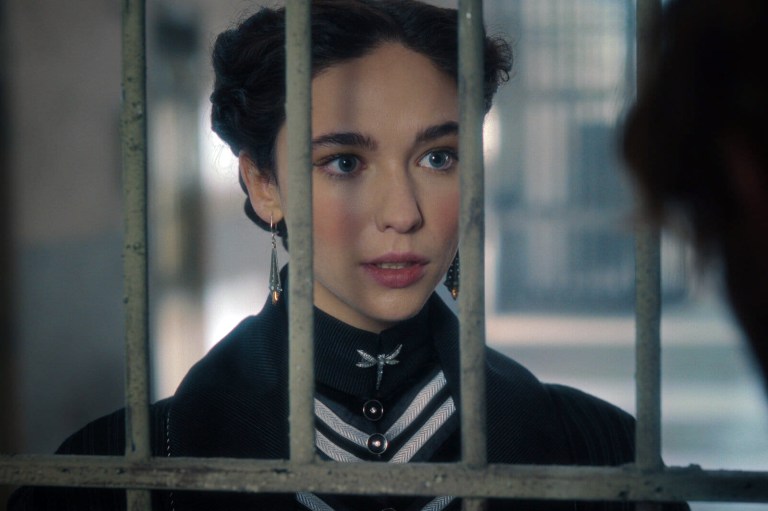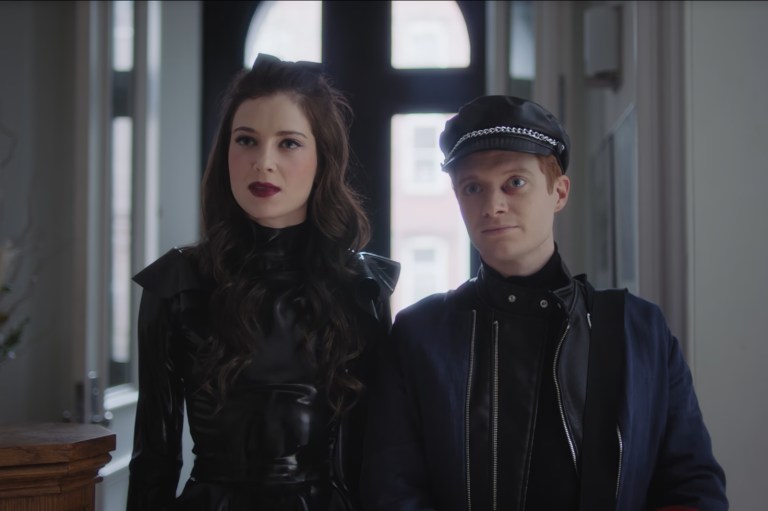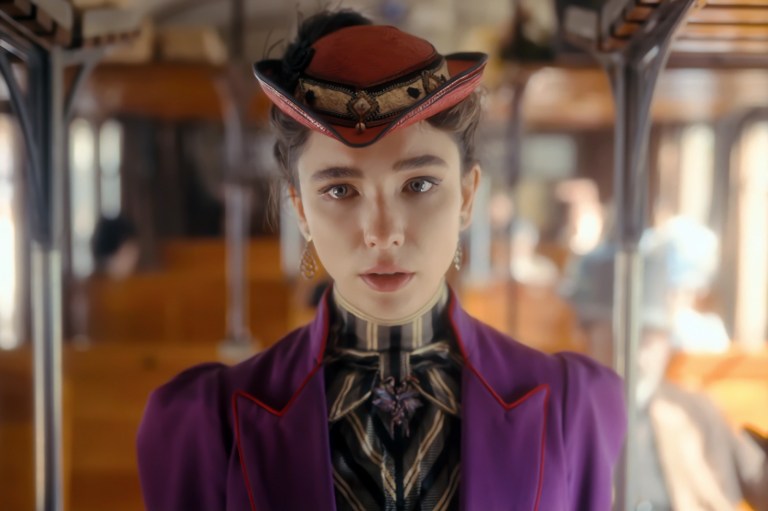
This Beautiful ‘Black Mirror’ Season 7 Episode Is Actually More Disturbing Than You Realized
Spoilers ahead for Season 7, Season 6, Season 4, and … Well, let’s just be safe and say all of them.
There are more Black Mirror episodes with happy endings than you think!
Yes, the characters of the first “USS Callister” episode are trapped in a video game at the end, but they can also make out with whoever now! Meanwhile, “Joan is Awful” ends with Joan and Annie Murphy finally liberated from their contracts with Netflix — er, Streamberry. Even “Demon 79” has a happy ending! The world may be erupting into nuclear chaos, but the protagonist still gets to rule the universe with her demon boyfriend.
What’s truly rare on Black Mirror is an episode that portrays technology in a positive light. “Hang the DJ,” for all its romantic pomp and circumstance, is a brilliantly written feature-length advertisement for dating apps. “San Junipero,” one of the show’s most beloved feel-good installments, is a tacit endorsement of the VR industry. In this vein of technophilia, Season 7’s “Eulogy” is the series’ latest episode to convey a sanguine thesis about technology. This might spell trouble for not just Black Mirror but humanity in general.

In the episode, Paul Giamatti’s character Phillip uses AI software to enter dynamic VR representations of his own memories, guided by an intrusive 4D AI woman who loves stirring the pot. Phillip has been asked by the AI guide to uncover positive memories of Phillip’s recently deceased ex-lover, Carol, to help write Carol’s eulogy. But the AI guide, who is revealed to be Carol’s daughter, forces Phillip to confront several dark moments from his past. As Phillip begins to see his past with Carol more clearly, we the viewers see that his break-up with Carol was not entirely Carol’s fault. This seems to be what Carol’s daughter wants — moral ambiguity; a reason to justify her bitterness towards Phillip. However, it also causes Phillip to uncover a tragic detail, literally hidden in his memory: He lost Carol’s final letter to him, thus missing a chance to be with her forever. By discovering this, Phillip finally gains closure about his failed relationship with Carol and can move on. It’s ironic, wistful, and cathartic. It’s also an implied approval of using AI technology to engage with grief.
In fact, Giamatti himself, an admitted technophobe, praised therapeutic AI technology in an interview with Netflix. “There’s something beautiful about how AI is easing somebody’s grief and easing somebody’s sense of loss,” he said. “I do feel like the character’s coerced somewhat by it, but ultimately, it’s a good thing. I hope that this episode is touching to audiences […], that it causes people to reflect a bit about themselves and their lives and about the possibly positive function of AI in their lives.”
This sort of AI-positive messaging is preferred by Black Mirror’s streaming home, Netflix, as well. Netflix’s co-CEO Ted Sarandos recently told a Wall Street analyst that he hopes to embrace such technology at Netflix to make movies “cheaper” and “better.” He doesn’t go so far as to say he’ll use AI to replace jobs that human employees could do, but it’s implied. The fact that Black Mirror creator Charlie Brooker, who co-wrote “Eulogy,” is now falling in step with Netflix’s views on AI indicates that Brooker is losing his critical perspective on modern technology. As a result, future Black Mirror episodes might feel less trenchant and prescient and more like, well, a cheap Netflix movie.
Worse yet, the endorsement of AI in “Eulogy” gives weight to companies that currently sell grief-related AI. HereAfter AI and Project December are both companies that employ AI to recontrust the personalities of deceased loved ones. Giamatti himself has created a parallel between “Eulogy” and such technology by supporting the idea of AI “easing somebody’s grief.” But just like in the Black Mirror Season 2 episode “Be Right Back,” such real-life services can actually prolong users’ grief and allow them to detach from reality. Of course, I’m not judging anyone who’s conscious of this and does it anyway. I’m a huge fan of disassociating! But for every argument made in “Eulogy,” there should be a “Be Right Back” warning presented alongside it. “Eulogy,” and Netflix’s official discussion of the text, is missing that.
We already live in a near-dystopian world in which lazy people with disposable income can pay for an AI service to call their elderly parents when they can’t be bothered themselves. Must we make this worse? As much as “Eulogy” is about the very human problems of miscommunication and regret, it’s also a story about a man who needs AI to feel these things in the first place. You just know that some moneyed tech bro is going to see this episode and get the wrong idea. By Season 8, we’ll have replaced all cognitive therapists with sassy AI-driven vision quests — and “Eulogy” will be held responsible.











